Year-End Match Opportunity! Your donation multiplies. Donate now ➔
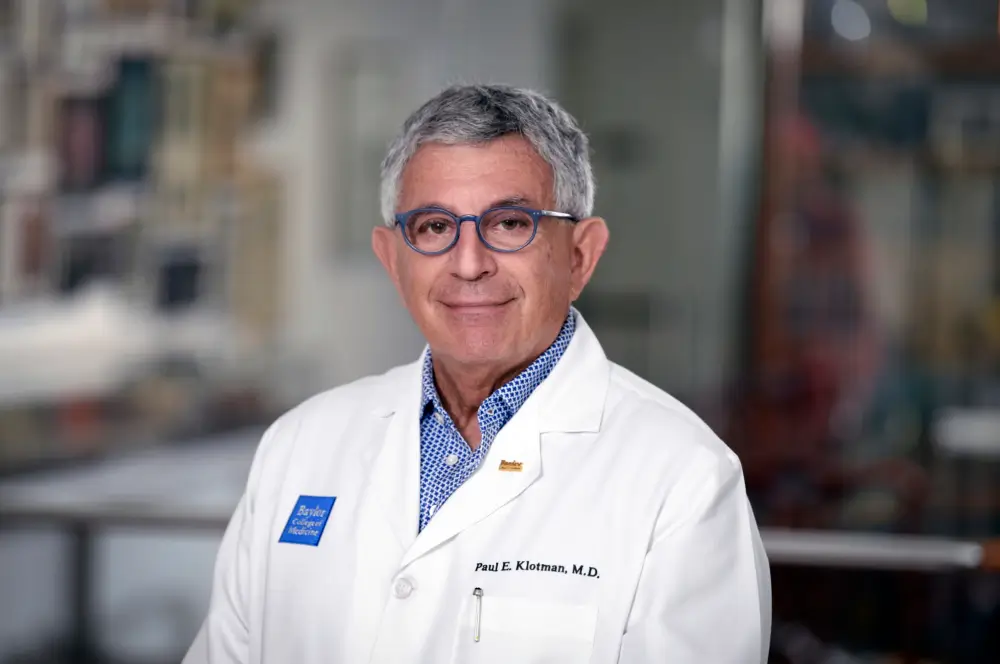
President, CEO and Executive Dean
Baylor College of Medicine
Dr. Paul Klotman began serving as president, CEO and executive dean of Baylor College of Medicine on September 1, 2010. He received his B.S. degree in 1972 from the University of Michigan and his M.D. from Indiana University in 1976. He completed his medicine and nephrology training at Duke University Medical Center. He stayed at Duke as a faculty member before moving to the National Institutes of Health (NIH) in 1988, where he became chief of the Molecular Medicine Section in the Laboratory of Developmental Biology. In 1993, he became the chief of the Viral Pathogenesis Laboratory at the National Institute of Dental and Craniofacial Research of the NIH. In 1994, he moved to Mount Sinai School of Medicine as chief of the Division of Nephrology. In 2001, he was appointed to the chair of the Samuel Bronfman Department of Medicine of the Mount Sinai School of Medicine.
At Baylor, he oversees the only private health sciences university in the southwestern United States, with total research funding of more than $650 million. The School of Health Professions is among the best in the nation, as is the Graduate School of Biomedical Sciences. The College is also home to the first National School of Tropical Medicine in North America. Baylor is ranked first among all Texas colleges, universities and medical schools in federal funding for research and development, and it is ranked second in federally funded research expenditures by the National Science Foundation.
As the CEO of Baylor College of Medicine, Dr. Klotman oversees approximately 15,000 employees, 3,500 students, residents and fellows. He is responsible for the Baylor medical staff at Baylor St. Luke’s Medical Center, Texas Children’s Hospital, the Michael E. DeBakey Veterans Affairs Medical Center, Ben Taub Hospital and its affiliated clinics, the Menninger Clinic and the Children’s Hospital of San Antonio. He serves on the Board of Directors of St. Luke’s Health System and the Baylor St. Luke’s Medical Center, the College’s jointly owned and governed private adult hospital.

Professor and Vice Chair for Research
Division of Surgical Oncology
Michael E. DeBakey Department Surgery
Baylor College of Medicine
Dr. Livia Schiavinato Eberlin received her B.S. in chemistry from the State University of Campinas in São Paulo, Brazil, and her Ph.D. in analytical chemistry from Purdue University. She pursued her postdoctoral research in chemistry at Stanford University. Before joining Baylor, Dr. Eberlin started her independent career in the Department of Chemistry at The University of Texas at Austin. At Baylor, she currently serves as professor and vice chair for Research in the Michael E. DeBakey Department of Surgery.
Dr. Eberlin and her team are recognized for their innovative research in analytical chemistry, medical mass spectrometry and cancer research. Dr. Eberlin and her research team are the recipients of many honors for this research, including a National Institutes of Health K99/R00 Pathway to Independence Award, a Forbes 30 Under 30 listing in the Healthcare category, a Sloan Fellowship, a Moore Inventor Fellowship and a MacArthur Fellowship. Dr. Eberlin’s research program centers around the development and application of novel mass spectrometry technologies in health-related research, with a particular focus on disease detection and diagnosis.
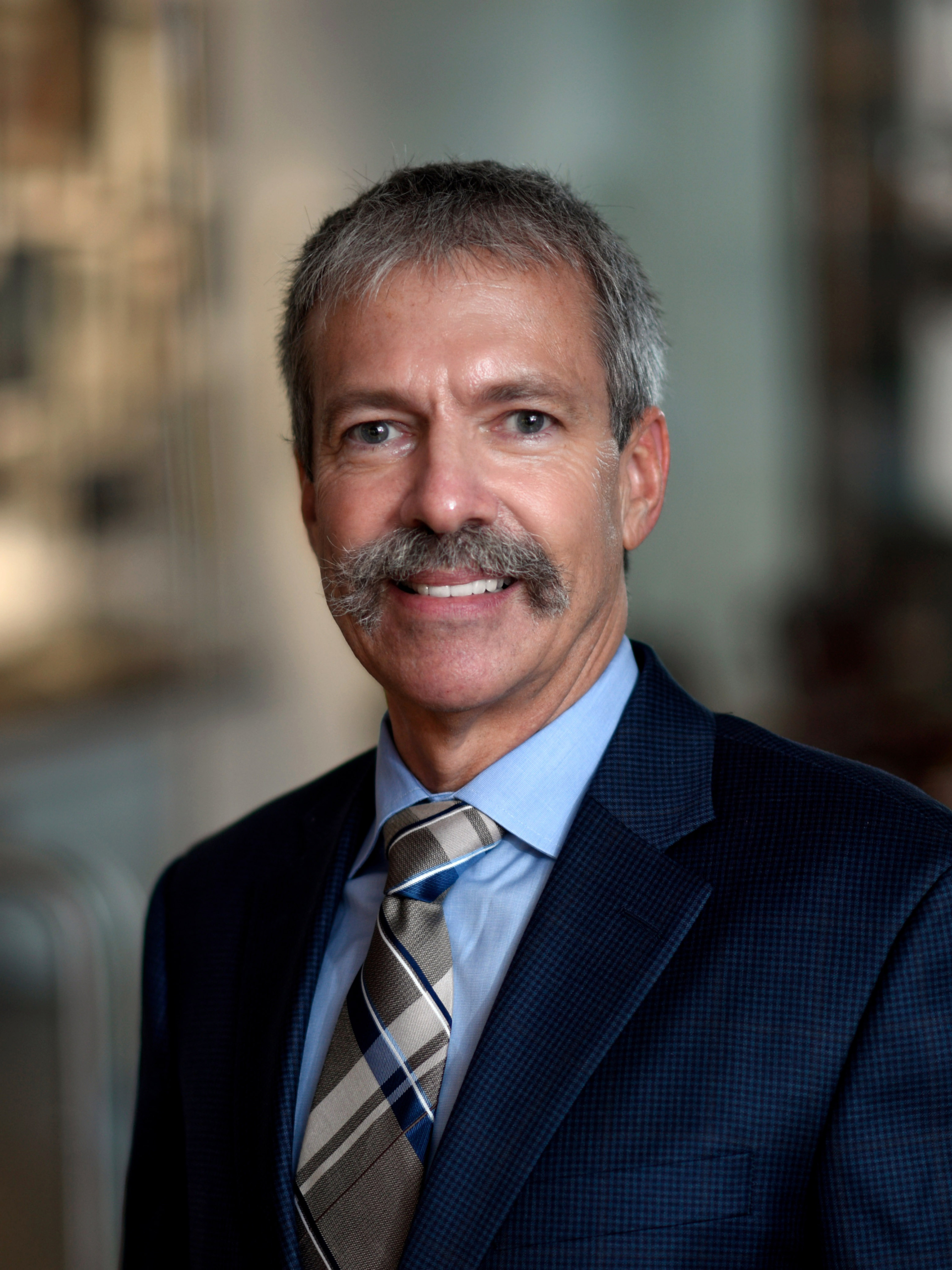
Professor and Chair
Menninger Department of Psychiatry and Behavioral Sciences
D.C and Irene Ellwood Chair in Psychiatry
Baylor College of Medicine
Dr. Wayne Goodman, D.C and Irene Ellwood Chair in Psychiatry and professor in the Menninger Department of Psychiatry and Behavioral Sciences at Baylor College of Medicine, specializes in obsessive-compulsive disorder (OCD) and deep brain stimulation (DBS) for intractable psychiatric illnesses. Dr. Goodman also conducts research on non-invasive forms of neuromodulation, including low-intensity-focused ultrasound and temporal interference stimulation. He is the principal developer of the Yale-Brown Obsessive Compulsive Scale (Y-BOCS), the gold standard for assessing OCD, and co-founder of the International OCD Foundation, the major advocacy group for patients with OCD. Before joining Baylor, he held senior administrative positions at Mount Sinai Hospital in New York, the National Institute of Mental Health and the University of Florida. He graduated from Columbia University with a degree in electrical engineering and received his medical degree from Boston University School of Medicine. Dr. Goodman completed his internship, residency and research fellowship at Yale School of Medicine, where he remained on the faculty for seven years. He was elected as a member of the Association of American Physicians, a Distinguished Life Fellow of the American Psychiatric Association and a Fellow of the American College of Neuropsychopharmacology. He has published over 400 peer-reviewed articles and is the recipient of grant funding as a principal investigator or one of multiple principal investigators from the National Institutes of Health BRAIN Initiative for DBS in psychiatric disorders, and most recently for a study on bipolar depression.
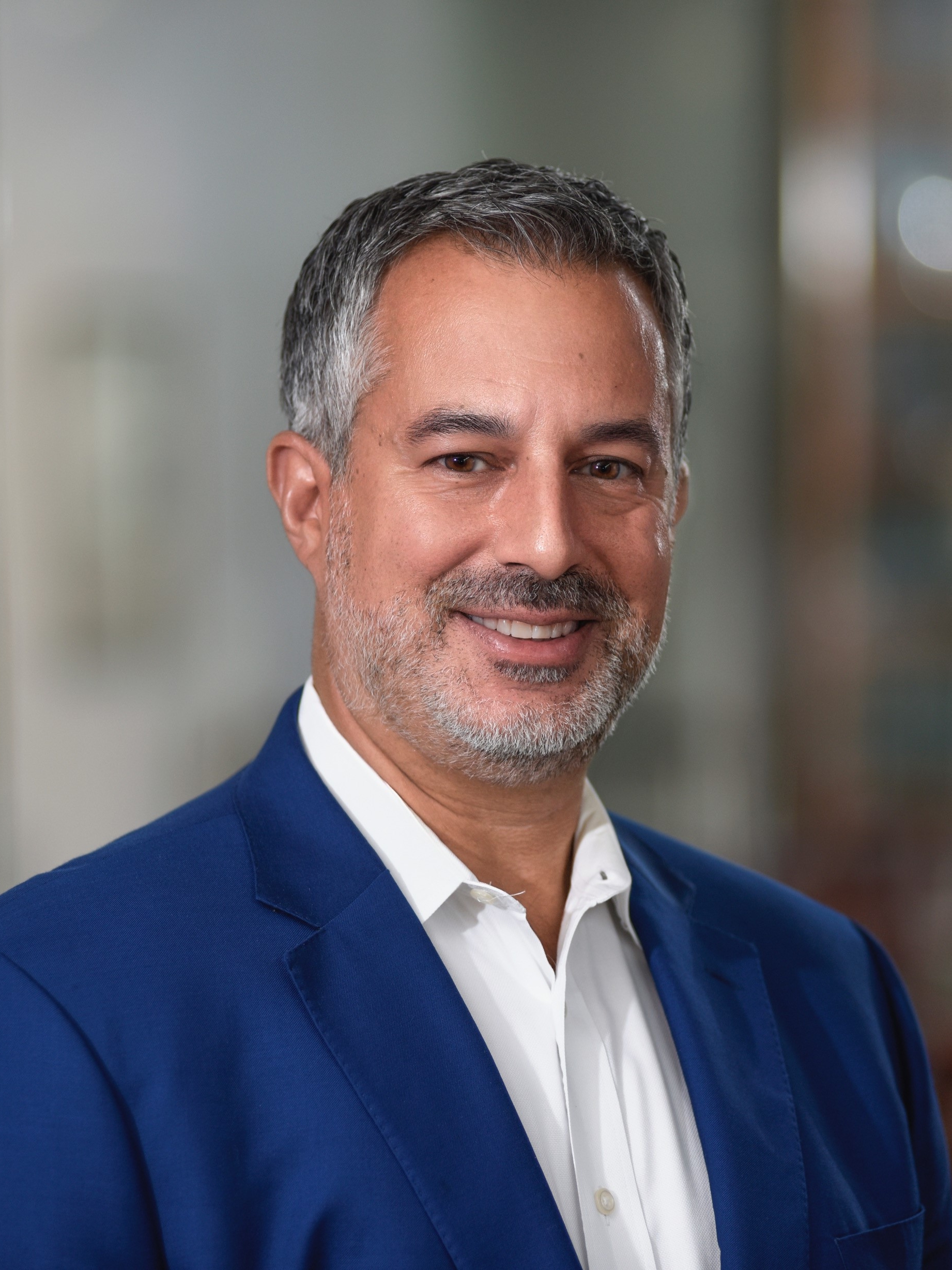
Chief Scientific Innovation Officer
Chair and Professor
Department of Molecular Virology and Microbiology
Director
Alkek Center for Metagenomics and Microbiome Research
Kyle and Josephine Morrow Chair in Molecular Virology and Microbiology
Baylor College of Medicine
Dr. Joseph Petrosino is the chief scientific innovation officer (CSIO) at Baylor College of Medicine, where he also serves as professor and chair of the Department of Molecular Virology and Microbiology and as director of the Alkek Center for Metagenomics and Microbiome Research (CMMR). He also holds appointments in the Dan L Duncan Comprehensive Cancer Center, the Department of Ophthalmology and the Human Genome Sequencing Center.
Dr. Petrosino was a principal investigator for the National Institutes of Health Common Fund Human Microbiome Project, and he established the CMMR in 2011 to develop and implement advanced technologies to understand how the microbiome impacts health and disease and translate this knowledge into new therapeutics and diagnostics. Within the CMMR, the Petrosino laboratory employs a variety of biological, genomic and informatic approaches to dissect the role of commensal microbes in human health. Over the past 20 years, the Petrosino laboratory has established over 550 microbiome-related projects with over 300 international collaborators, and it has elevated the understanding of how the microbiome impacts numerous diseases. Dr. Petrosino’s achievements in the microbiome arena led him to be named an American Society for Microbiology Distinguished Lecturer from 2012 to 2014. He received the Baylor College of Medicine Distinguished Alumni Award in 2024. He sits on the scientific advisory boards of several biotechnology, pharmaceutical and nutrition companies and has contributed to more than 230 peer-reviewed microbiome studies.
In 2013, Dr. Petrosino founded Diversigen, a BCM Technologies start-up where the robust pipelines built in the CMMR were commercialized to support biotech and pharmaceutical company needs in the microbiome and metagenomics-related arenas. Diversigen was acquired by Orasure Technologies in 2019. Following this transaction, in 2021, Dr. Petrosino was named Baylor’s CSIO and directs the College’s technology transfer efforts and the commercialization of its diverse therapeutic, diagnostic and device IP portfolio.
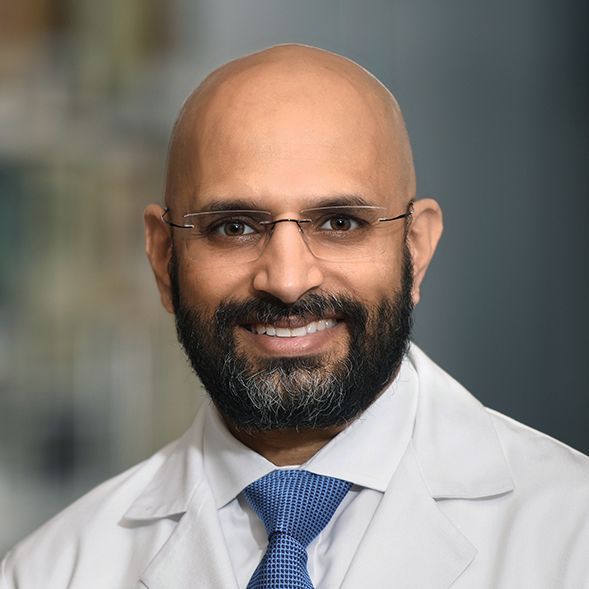
Chair and Professor
Department of Neurosurgery
Marc J. Shapiro Endowed Chair
Baylor College of Medicine
Dr. Ganesh Rao is the chair of and a professor in the Department of Neurosurgery and holds the Marc J. Shapiro Endowed Chair at Baylor College of Medicine.
Dr. Rao grew up in Phoenix, Arizona, and attended the University of Arizona (U of A), graduating with degrees in microbiology and chemistry. He then matriculated to the College of Medicine at U of A and graduated as a member of the Alpha Omega Alpha Honor Medical Society (AΩA). He matched to the University of Utah for neurosurgery residency under the leadership of M. Peter Heilbrun, M.D., and completed training under William T. Couldwell, M.D., Ph.D. During his residency, Dr. Rao spent two years in the laboratory of Daniel Fults, M.D., generating several publications and winning the American Academy of Neurological Surgeons’ Resident Award.
After completing residency, he spent a year as a fellow in neurosurgical oncology at MD Anderson Cancer Center (MDACC) under the guidance of Raymond Sawaya, M.D. Dr. Rao joined the faculty at MDACC in 2006 and rose to the rank of Associate Professor with Tenure. In addition to a robust clinical practice, which includes the treatment of cranial and spinal neoplasms, Dr. Rao has an active laboratory. He has long secured National Institutes of Health funding for research into the mechanisms of the malignant progression in glioma. He is also an active clinical researcher with numerous publications on a variety of neuro-oncological topics. His laboratory research has been recognized with the Preuss Award and the American Brain Tumor Association Young Investigator Award.
As the program director of a large residency program, Dr. Rao has been committed to the education of residents and fellows. He has been recognized by the Baylor residents for teaching excellence. He also is heavily involved in the education of the neuro-oncology fellows at MDACC. He is very involved in organized neurosurgery and was president of the Congress of Neurological Surgeons from 2018 to 2019. He is a fellow of the American Association of Neurological Surgeons and a member of the American Academy of Neurological Surgeons.
Dr. Rao and his wife, Lorelei, live in Bellaire, Texas, with their twin sons, Kiran and Zain.
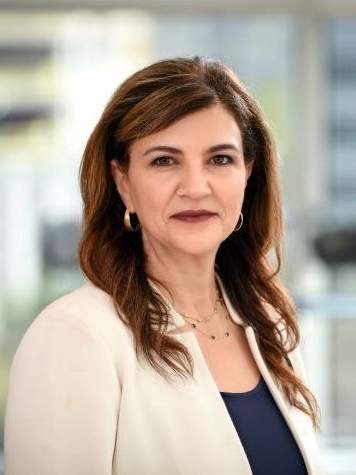
Medical Director of Concierge Services
Baylor College of Medicine
Dr. Rola El-Serag joined Baylor College of Medicine in 2025 as executive director of Concierge Practices. Previously, she was the L.E. and Virginia Simmons Senior Fellow in Health Policy and director of the Center for Health and Biosciences at the Baker Institute for Public Policy at Rice University. She was previously the medical director of the Women Veterans Health Program at the Michael E. DeBakey Veterans Affairs Medical Center (MEDVAMC) and an associate professor of medicine at Baylor. She served as an expert educator in women’s health within the Department of Veterans Affairs, both locally and nationally, as well as an advocate for the health of female veterans.
Her work at the MEDVAMC focused on program development, improving the quality of health care, expanding health care services, reducing gender disparities and changing institutional culture by educating employees and patients about women’s health issues and gaps in care. Dr. El-Serag has received multiple teaching and clinical awards, including the Norton Rose Fulbright Faculty Excellence Award and Women of Excellence Award at Baylor College of Medicine. She received her medical degree from the Tufts University School of Medicine and completed her residency in internal medicine at Baylor College of Medicine in 2002.
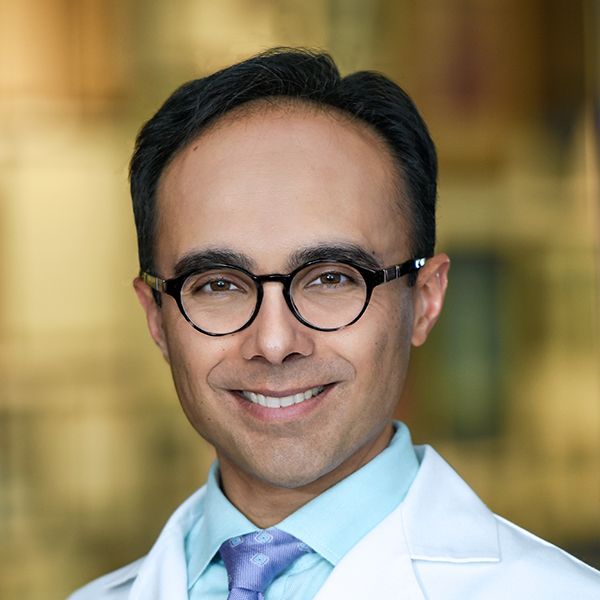
Professor and Vice Chair of Research
Department of Neurosurgery
Cullen Foundation Endowed Chair in Neurosurgery
Baylor College of Medicine
Dr. Sameer Sheth serves as professor of Neurosurgery and vice chair of Research at Baylor College of Medicine. Clinically, Dr. Sheth specializes in stereotactic/functional neurosurgery, including the surgical treatment of movement disorders, epilepsy, and psychiatric disorders. He employs a combination of stereotactic and traditional open surgical techniques—including deep brain stimulation (DBS), laser ablation, neuromodulation, radiosurgery and microsurgery—to maximize patient outcomes. Dr. Sheth’s research focuses on cognitive neurophysiology, often using opportunities derived from his clinical work. He studies higher-order human cognitive processes, including decision-making and emotional regulation, using intracranial electrophysiological recordings and non-invasive advanced imaging techniques. His lab also strives to improve neuromodulatory treatments for neurological and psychiatric disorders using surgical and non-invasive techniques.